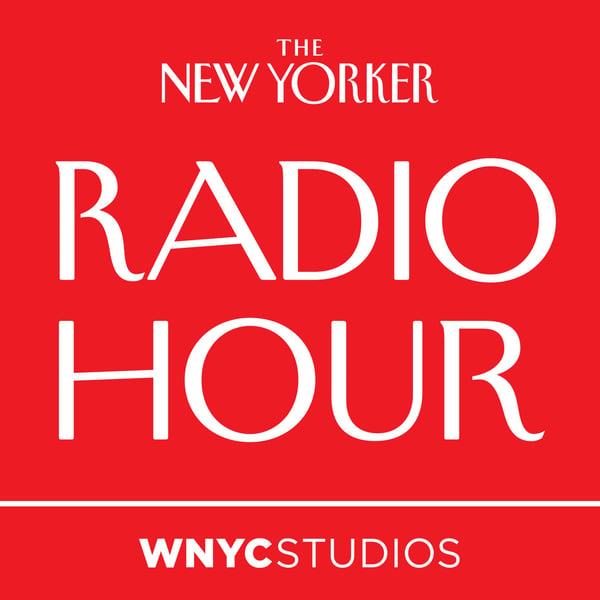Emily Nussbaum on the Culture Wars in Country Music
The New Yorker Radio Hour
WNYC Studios and The New Yorker
4.2 • 5.5K Ratings
🗓️ 4 August 2023
⏱️ 37 minutes
🧾️ Download transcript
Summary
Last month, the country singer Jason Aldean released a music video for “Try That in a Small Town,” a song that initially received little attention. But the video cast the song’s lyrics in a new light. While Aldean sings, “Try that in a small town / See how far ya make it down the road / ’Round here, we take care of our own,” images of protests against police brutality are interspersed with Aldean singing outside a county courthouse where a lynching once took place. Aldean’s defenders—and there are many—say the song praises small-town values and respect for the law, rather than promoting violence and vigilantism. The controversy eventually pushed the song to No. 1 on the Billboard Hot 100 chart. The staff writer Emily Nussbaum has been reporting from Nashville throughout the past few months on the very complicated politics of country music. On the one hand, she found a self-perpetuating culture war, fuelled by outrage; on the other, there’s a music scene that’s diversifying, with increasing numbers of women, Black artists, and L.G.B.T.Q. performers claiming country music as their own. “I set out to talk about music, but politics are inseparable from it,” Nussbaum tells David Remnick. “The narrowing of commercial country music to a form of pop country dominated by white guys singing a certain kind of cliché-ridden bro country song—it’s not like I don’t like every song like that, but the absolute domination of that keeps out all sorts of other musicians.” Nussbaum also speaks with Adeem the Artist, a nonbinary country singer and songwriter based in East Tennessee, who has found success with audiences but has not broken through on mainstream country radio. “I think that it’s important that people walk into a music experience where they expect to feel comforted in their bigotry and they are instead challenged on it and made to imagine a world where different people exist,” Adeem says. “But, as a general rule, I try really hard to connect with people even if I’m making them uncomfortable.”
Transcript
Click on a timestamp to play from that location
| 0:00.0 | This is The New Yorker Radio Hour, a co-production of WNYC Studios and The New Yorker. |
| 0:09.2 | Welcome to The New Yorker Radio Hour, I'm David Remnick. |
| 0:12.3 | The country singer Jason Aldine released a song called Try That in a Small Town, and |
| 0:16.8 | at first, it didn't get any particular attention. |
| 0:20.9 | But last month, a music video for the song came out produced by |
| 0:29.9 | a company called Tacklebox Films. |
| 0:37.5 | The video put Aldine's song in a very different light. |
| 0:40.8 | It featured footage of protests that followed the killing of George Floyd, |
| 0:45.2 | and it was filmed at a county courthouse where a lynching one's took place. |
| 0:49.1 | So lyrics like Try That in a Small Town, see how far you make it down the road? |
| 0:54.4 | Well, it seemed to be celebrating vigilantism and violence. |
| 0:59.2 | Some have even said that the song is pro lynching. |
| 1:02.9 | Aldine's defenders, and there are many, say the song praises small town values and respect for |
| 1:09.3 | the law. A few seconds of the protest footage were later removed, and the controversy |
| 1:14.7 | helped push the song to number one on Billboard's Hot 100 chart. |
| 1:19.6 | Staff writer Emily Nussbaum, a huge fan of country music, has been in Nashville over the |
| 1:23.9 | last few months reporting on the very complicated politics of country music right now. |
| 1:30.4 | On the one hand, there's a culture war like the battle surrounding the Aldine song. |
| 1:35.2 | On the other hand, there's a music that's actually diversifying with more women, |
| 1:39.8 | more black artists, more LGBT performers, claiming country music as their own. |
| 1:46.6 | Now, Emily, you described Nashville as a town midway through a bloody metamorphosis. |
| 1:52.0 | What did you mean by that? Well, when I first went down to Nashville, |
... |
Please login to see the full transcript.
Disclaimer: The podcast and artwork embedded on this page are from WNYC Studios and The New Yorker, and are the property of its owner and not affiliated with or endorsed by Tapesearch.
Generated transcripts are the property of WNYC Studios and The New Yorker and are distributed freely under the Fair Use doctrine. Transcripts generated by Tapesearch are not guaranteed to be accurate.
Copyright © Tapesearch 2025.

